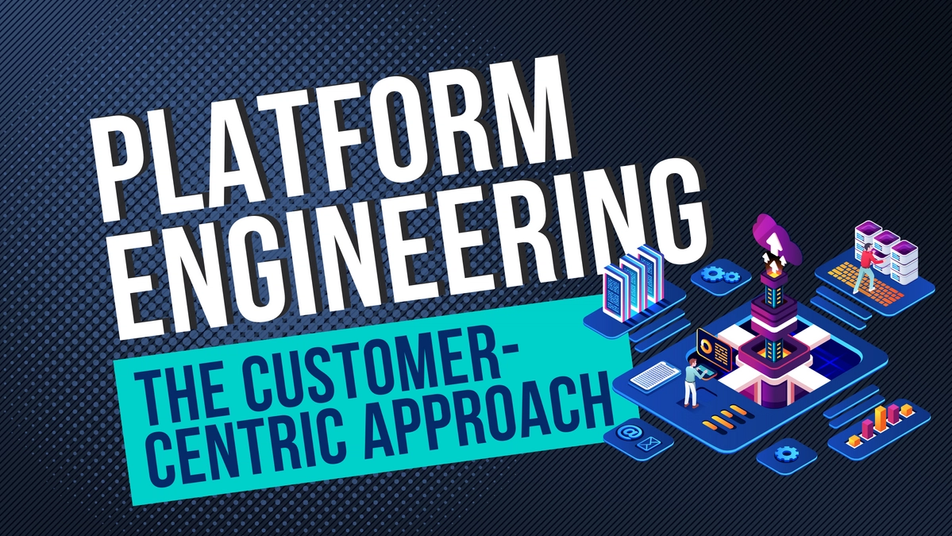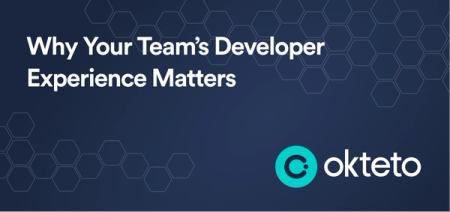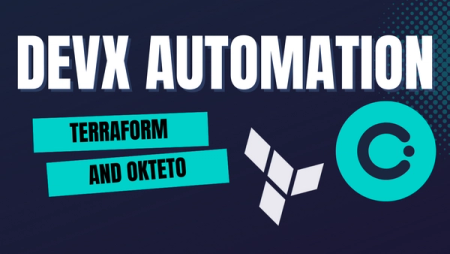Platform Engineering Versus Devops

Platform Engineering (3 Part Series)
- Platform Engineering Versus Devops
- Platform Engineering Roadmap: Best Practices You Need To Know
- Benefits of Platform Engineering
Platform engineering has become an increasingly popular topic in the software development industry. But a lot of people are still confused on what's the difference between platform engineering and DevOps. In this blog, I want to share with you how platform engineering came to be, how it compares to DevOps, and the benefits of platform engineering.
Understanding the Evolution: DevOps versus Platform Engineering
Historically, developers have been responsible for writing code and focusing solely on their applications. Once the code was written, it was handed over to operations teams for deployment. This separation of concerns made sense in a world where software was more monolithic and less complex.
However, with the advent of microservices, containers, and DevOps practices, developers started taking on additional responsibilities. They were expected to manage application builds, infrastructure, and more. This shift led to a blurred line between development and operations, often resulting in cognitive overload for developers. They were no longer solely focused on writing code, but also had to worry about infrastructure and deployment processes.
As developers embraced the new paradigm, they found themselves navigating a complex landscape of tools and technologies. They had to master containerization tools like Docker, orchestration tools like Kubernetes, and infrastructure as code tools like Terraform. This added an extra layer of complexity to their daily tasks, requiring developers to acquire new skills and stay updated with the latest trends in the rapidly evolving DevOps ecosystem.
I hope this historical context helped you understand the whole platform engineering vs DevOps debate. It should also make you appreciate the challenges faced by developers and the need for a more streamlined approach.
Platform Engineering Benefits: Facilitating a Focus on Core Competencies
The rise of platform engineering addresses these challenges. One of the benefits of platform engineering is that there is now a dedicated team to act as an architect of shared infrastructure, tooling, and platforms for developers. By standardizing processes and providing consumable services, this team empower developers to focus on what they do best: writing code and delivering value.
In essence, a platform engineer needs to act as an enabler within the organization. By creating and managing a suite of consumable services that encompass everything developers require, platform teams dramatically reduce the cognitive load on developers. Developers can now access a standardized set of services for tasks like setting up dev and test environments, artifact building, etc., allowing them to concentrate primarily on coding. This is another way to compare platform engineering versus DevOps, since in the DevOps model developers were themselves expected to take care of a lot of these things.
Platform engineering tools not only streamline the development process but also benefits platform engineers by establishing standardization and governance across these services. The result is a more focused and efficient work environment for both developers and platform engineers which fosters innovation and fast shipping.
Adopting a Customer-Centric Approach: The Key to Excellence
You can only start to reap the benefits of platform engineering when you have a deep understanding of the challenges faced by developers. Just as businesses conduct market research to identify customer needs and pain points, platform engineers must invest time and effort in understanding the daily obstacles developers encounter. Take the time to survey developers within your organization, familiarize yourself with their workflows, and see if they're able to focus on their core job of application development or not. Try to minimize or automate away any non-value-adding activities that distract them from their work and reduce their overall productivity.
The cornerstone of excelling in platform engineering versus DevOps lies in adopting this customer-centric approach towards developers. That in my opinion is the biggest difference between the two. Treating developers as your customers is all about active listening and understanding. By prioritizing their needs and experiences, you not only enhance your effectiveness as a platform engineer but also build a strong partnership with your developer colleagues. This alignment of interests can yield significant positive outcomes in terms of productivity, satisfaction, and the overall success of software teams within your organization.
Conclusion
I hope this blog helped you understand the whole platform engineering vs DevOps paradigm better. With the right mindset towards Platform Engineering you can get significant improvements in developer experience. Read about one of our customers, monday.com, who saw a 50% boost in developer productivity by focusing on the right problems to solve!
I also hope this blog helped you provide a good starting point in your journey towards building a platform team. If you're still not sold on the benefits I would recommend reading our other blog on the benefits of platform engineering.
It's crucial to understand that this philosophy is not an isolated concept. Rather, it forms the foundation upon which the core tenets of platform engineering are built. The principles that guide exceptional platform engineering are, in essence, an extension and deepening of this customer-focused mindset.
In our next blog, I will talk about best practices when it comes to platform engineering. These practices include creating golden paths, self-serviced environments, and some other things which we will dive into next time :)
Platform Engineering (3 Part Series)
- Platform Engineering Versus Devops
- Platform Engineering Roadmap: Best Practices You Need To Know
- Benefits of Platform Engineering


 Arsh Sharma
Arsh Sharma